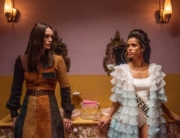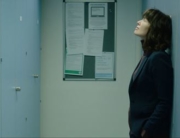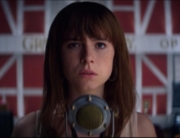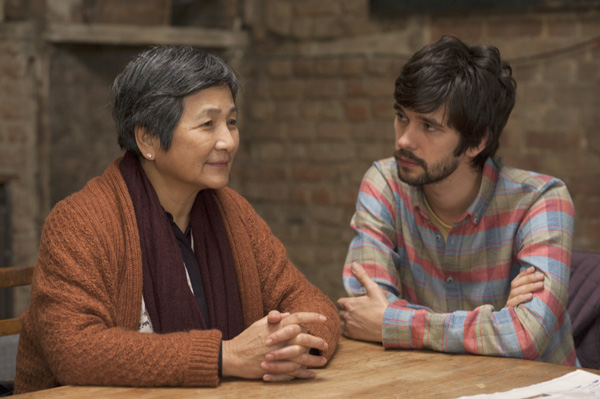As pockets of the world seem endlessly rocked in sectarian violence that threatens to spill over into other countries, The Journey reminds us of the hopeful example from a decade ago that peace is possible between the bitterest of enemies. In 2006, Rev. Ian Paisley and Irish Republican Army leader Martin McGuinness negotiated the St. Andrews Agreement, the end to the 40 years of strife between Protestants and Catholics in Northern Ireland, known as the Troubles.
Director Nick Hamm and writer Colin Bateman, both natives of Northern Ireland, were fascinated by how this finally came about, mainly in the personal diplomacy, not the politics. The two factional leaders had never even met before, but they realized you make peace with your enemies, not your friends.
When the peace talks, which took place in Scotland, had to take an intermission so Paisley could get back to Belfast to celebrate his 50th wedding anniversary, McGuinness traveled with him out of the concern for potential violent retaliation. (The Troubles were so inflamed that politicians from opposing factions were said to travel together to prevent assassination attempts.) Paisley died in 2014, McGuinness earlier this year—and neither man ever revealed what they may have discussed on that trip. Though Hamm and Bateman did talk to family members to understand the two men, they imagine a trip that gradually lets two old foes finally see each other as individuals.
Brought together by British Prime Minister Tony Blair (Toby Stephens) and the Irish Prime Minister/Taoiseach Bertie Ahern (Mark Lambert), a road trip is arranged by MI5’s Harry Patterson (John Hurt). Because of bad weather over Ireland, a short hop to one air field turns into a longer detour to Edinburgh Airport. The young limousine driver, Jack (Freddie Highmore), has his MI5 boss in his ear bud and the rest of the negotiating team nervously watching and directing his route via a hidden camera.
The two men are portrayed as charismatic defenders of their constituents. Colm Meaney plays Martin McGuinness at 56 years old, the former Irish Republican Army leader who keeps noting “alleged” for the record, regarding his past. He has a gift for gab but can turn on a dime from genial to tough. He remembers every civil rights injustice from the Protestant Unionists and the aggression by their supporting paramilitaries and the occupying British Army.
Transforming himself even more with body language and vocal changes than through prosthetics, Timothy Spall scarily captures how 80-year-old Rev, Ian Paisley was a fervid right-wing nationalist who had taken his conservative Bible-thumping as far as the European Parliament. Gay rights advocates referred to him as “The Irish Ayatollah”; he calls himself a “Gospel Man.” Paisley would have been easy to caricature, but by the time they lose their minder for a walk in the woods, he stops repeating old speeches and sermons to reveal a devoted family man. (Junior was with him at the talks and later took over his political career).
Because so much of their (quasi-improvised) exchanges are more about personalities (magnified in the long scenes in the backseat of the car) than specific negotiating positions, not much knowledge of the Troubles is needed, nor the final power-sharing deal that is still holding. (There is a passing reference to the imprisoned hunger fasters of 1981, as seen last year in Bobby Sands: 66 Days).
What strongly comes through is that these longtime adversaries have gotten tired of the constant struggles and their impact on their people. A key insight occurs when McGuinness warns that, since 9/11, the younger partisans want bigger bombs for bigger targets with more dead to get more public attention. In parallel with J.T. Rogers’s Tony-winning play Oslo about secret negotiations between Israelis and Palestinians, Paisley and McGuinness glean the advantages of working with an opposite who has been through similar experiences; they can get beyond the rhetoric and relate to the other as a fellow human being.
By the time the peace agreement went into effect the next year, the two men got along so well, in government and personally, that the press nicknamed them The Chuckle Brothers, from a British children’s TV show. The Journey makes this amazing transformation believable and holds them up as a grown-up model for other bitter antagonists to follow. In difficult times, this dose of hope is an intelligent reprieve.

















Leave A Comment